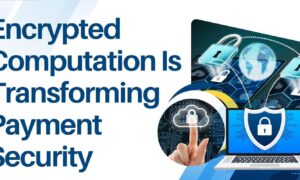Payment methods must be safe, rapid, and simple in the digital economy. Alternative payment methods are sought by individuals and organizations due to the risk of fraud and financial loss. New electronic payment methods like email checks are promising due to their familiarity and better digital security. To understand why email checks are financially sustainable, consider their utility, security, and protection of payers and recipients from alternative payment methods.
The Growing Need for Secure Payment Methods
Safe, fraud-proof solutions are needed as digital transactions become important to global financial operations. Cybercrime has become more complex, with phishing, identity theft, and data breaches. As organizations and individuals fear these hazards, payment security must be solid. Email checks offer the convenience of a traditional check and use encrypted digital technology for maximum security.
Encryption and Data Security in Email Checks
Emailing checks protect financial data with advanced encryption. Sending an email check with data encryption ensures only the receiver may see it. Financial data theft by unauthorized parties is less likely. Only the intended recipient can decrypt the check data with a password or secure connection. Email checks fulfil strong industrial data protection standards with this level of security, equivalent to online banking. For safe and dependable transactions, email check systems meet PCI DSS regulations.
Reducing the Risk of Fraud with Authentication Measures
MFA to authenticate sender and recipient identities is a big email check benefit. To prevent email fraud, senders may need passwords, security questions, or biometrics before sending checks. Authentication is typically required to view and deposit checks.
Dual-layer verification prevents unwanted parties from impersonating either side, reducing fraud. Phishing, an online attack that steals personal information, is prevented with MFA. Email checks are safer than traditional checks because they require several verifications.
Digital Trails and Tracking for Accountability
Digital audit trails improve financial evaluations and audits by increasing accountability and compliance. Because every transaction is recorded and traceable, email checks are better than traditional checks. Transparent transactions improve financial process integrity and confidence for organizations with multiple transactions.
Minimizing Financial Loss through Security-Backed Infrastructure
Multiple email check providers use secure servers and infrastructure to process payments and secure transactions. This method reduces financial risk by reducing issuer and recipient account verification. Trustworthy email check firms may offer fraud and cyberattacks insurance to protect both parties’ money in the unlikely event of a security breach.
Email checks’ safe architecture speeds up payments and decreases human mistake when integrated with accounting software. This secures payment monitoring and management for firms. Email checks help small and large organizations protect their funds owing to technology.
Building Trust and Confidence in Digital Transactions
A major benefit of email checks is building trust in online transactions. In a world of growing security threats, safe payment methods reassure clients, partners, and stakeholders. Proactive risk reduction and sensitive information security can increase a company’s reputation and client loyalty. Email checks safeguard companies and individuals from financial loss and show ethics. Such dedication may assist clients choose service providers or business partners in a security-conscious era.
Conclusion
Email checks are safer, more efficient, and cheaper than paper checks. Email checks prevent fraud and financial loss with enhanced encryption, authentication, digital tracking, and infrastructure. They’re cheap and eco-friendly, making them terrific digital choices. Email checks combine convenience and security for modern businesses and consumers seeking secure payment alternatives.



































